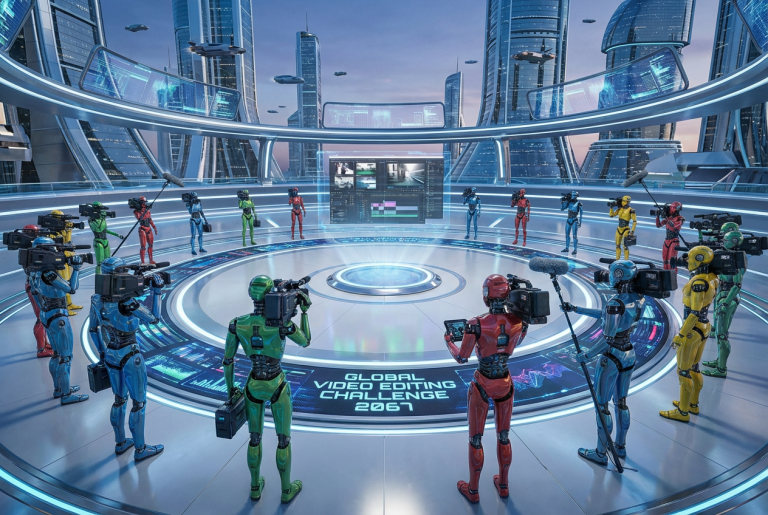California’s AI gaming boom: how the Golden State is reshaping the future of online games

Artificial intelligence is transforming life as we know it and redefining how humans play. Nowhere is this more apparent than in California, the epicenter of the global tech industry and a rapidly evolving gaming ecosystem. With Silicon Valley serving as the world’s innovation engine, the Golden State is home to 32 of the world’s top 50 AI companies, according to Governor Gavin Newsom’s office.
This unmatched concentration of AI talent and infrastructure has positioned California as the frontier of artificial intelligence applications in the gaming world. In 2023, Newsom signed an executive order to guide the ethical use of generative AI (GenAI) across state services, further reinforcing California’s commitment to innovation with responsibility. And by 2024, the state had launched initiatives to harness GenAI to solve complex societal issues, such as traffic reduction and homelessness. But AI’s impact stretches far beyond governance.
A recent report by NBC Bay Area revealed that AI is deeply embedded in California’s gaming industry, influencing everything from character development to real-time storytelling. Whether you’re a casual gamer in Los Angeles or a tech developer in San Jose, the AI gaming boom is impossible to ignore.
How AI is powering open-world sagas and poker tables

From studios crafting hyperrealistic role-playing worlds to developers building AI-powered sports games, California is the birthplace of a new breed of video games. Today, game developers in California are using AI to generate vast, adaptive storylines that respond to each player’s behavior. Instead of relying on pre-scripted narratives, developers implement machine learning algorithms to create real-time, responsive dialogue and scenarios, making every playthrough feel unique. AI also optimizes difficulty levels based on a player’s skill, keeping them in a constant flow and challenge.
Nowhere is AI’s strategic potential more evident than in poker. Scientific American recently highlighted how AI systems outperform human players in no-limit Texas Hold’em using strategies based on Nash Equilibrium. This complex, game-theory-based approach provides optimal betting tactics. However, while Nash Equilibrium may be mathematically perfect, expert human players often deviate from it, adding unpredictability and emotional depth to their gameplay.
In California’s thriving online poker scene, regulated under a patchwork of state and tribal laws and thriving on offshore platforms, AI is being used to train elite players and spot potential cheating behaviors. Americas Cardroom, a leader in online poker in California, is leveraging AI-driven fraud detection tools that analyze play patterns to detect bots or collusion. Conversely, professional players employ AI-based solvers and simulation tools to sharpen their skills, running tens of thousands of hypothetical hands to perfect their in-game decisions.
AI is rewriting the rules of entertainment
California’s influence on global entertainment is already legendary. Hollywood, Silicon Valley, and the gaming capitals of Orange County and San Diego form a cultural trifecta that shapes everything from blockbuster movies to indie game hits. Now, AI is acting as a creative multiplier across all these fields.
Current industry insights note that “AI is Changing the Entertainment Industry” by making huge strides in visual effects (VFX), video quality enhancement, and automated game design. California-based studios are pioneering AI tools that automate the rotoscoping process, generate realistic facial animations from text input, and upscale video from 1080p to 4K without manual editing. This democratization of high-quality visuals means smaller teams can create blockbuster-level content with fewer resources and less time.
AI accelerates development pipelines by auto-generating textures, characters, and even fully explorable maps. This not only shortens development cycles but also increases creative experimentation. A small indie studio in Santa Monica can now develop rich, immersive environments that rival AAA games built by hundred-person teams.
Beyond visuals, AI is transforming how games respond to players. Emotion recognition software is being embedded into virtual reality headsets to detect a user’s mood and adjust game tone accordingly. Dialogue engines powered by large language models, many trained in California’s top research labs, enable game NPCs (non-playable characters) to respond in natural, unscripted ways, blurring the line between real and virtual interaction.
Aside from the game itself, AI is playing an increasing role in scriptwriting, music composition, and even voice acting, generating entire voiceovers with astonishing accuracy. Studios in Burbank are experimenting with AI-generated screenplay drafts, while AI musicians trained on California’s rich musical heritage are composing adaptive soundtracks tailored to player behavior.
As AI continues to integrate deeper into entertainment, California remains the launchpad for this revolution: building the tools, setting the standards, and pushing creative boundaries. The result? A new age of entertainment, where imagination is no longer limited by manpower or budget, but only by vision.




